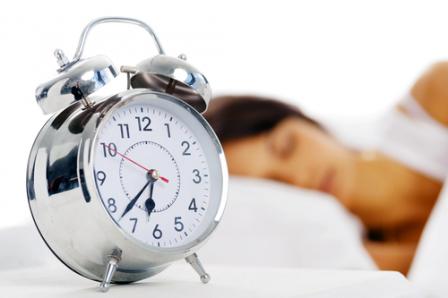Will Too Much Sleep Make You Fat?
Last week, you learned exactly how not getting enough sleep (less than about seven hours per night), can cause fat gain, muscle loss, and an inability to control the appetite, but the solution is definitely not to begin sleeping as much as you possibly can.
Ben Greenfield
Listen
Will Too Much Sleep Make You Fat?
In last week’s post, you learned exactly how not getting enough sleep (less than about seven hours per night), can cause fat gain, muscle loss and an inability to control the appetite, along with increased risk for a host of chronic diseases such as diabetes and obesity.
But the solution is definitely not to begin sleeping as much as you possibly can. Oversleeping may seem like a good idea to fight off the fat gain that can accompany undersleeping, but it’s been shown that sleeping in excess of nine hours per night can be just as damaging to your sleep cycles and your waistline as not getting enough sleep. In this article, you’re going to find out exactly why.
People who oversleep experience a disruption in the body’s natural 24 hour biological cycle (the circadian rhythm) and because of this, oversleepers can experience a number of side effects as their bodies struggle to “sync up” with the correct time, leading to a host of health issues associated with oversleeping, including:
- Blood sugar fluctuations
- Cognitive impairment
- Higher body weight
- Depression
- Increased inflammation
- Increased pain
- Impaired fertility
- Higher risk of obesity
- Higher risk of diabetes
- Higher risk of heart disease
- Higher risk of stroke
- Higher all-cause mortality
Several of these oversleeping consequences directly affect fat loss! Let’s take a look at a few of them:
Blood sugar fluctuations: Glucose tolerance refers to your body’s ability to process sugars, and something called “impaired glucose tolerance” is associated with insulin resistance (which you learned about in part 1 of this series) and is a risk factor for type 2 diabetes and heart disease.
For example, one Canadian study investigated the lifestyle habits of 276 people over six years, and found that people with long (and short) sleep durations were more likely to develop impaired glucose tolerance and diabetes. Another more recent review of diabetes and sleep studies alsofound a significant relationship between increased risk of type 2 diabetes and oversleeping.
Weight gain: Using the same data as the Canadian study mentioned above, researchers also found an association between weight gain and excess sleep. Folks who slept in excess of 9 hours per night actually gained more weight than “normal” sleepers over a six year period, and were fat more likely to experience a significant weight gain. As a matter of cat, people who consistently slept over nine hours per night were shown to be 21% more likely than normal sleepers to become obese!
Of course, there is the chicken-and-egg question of whether oversleeping causes these type of harmful conditions, or whether certain illnesses cause oversleeping.
Inflammation: Chronic inflammation is linked with increased risk of a host of chronic diseases such as diabetes, heart disease and Alzheimer’s, and getting too little or too much sleep can significantly contribute to inflammation. Inflammation is measured by levels of cytokines called C-reactive proteins, or CRP. One studyopens PDF file compared CRP levels and sleep durations in a large group of adults and found that long sleepers had elevated levels of inflammatory markers. Elevated CRP was seen in Caucasians who slept less than five and more than nine hours, Hispanics who slept more than nine hours, African-Americans who slept less than five and more than eight hours, and Asians who slept more than nine hours. Another study showed that female long sleepers had 44% higher CRP levels compared to women sleeping seven hours and yet another study showed that CRP levels increased by 8% for each additional hour of sleep beyond the normal seven to eight hours per night, even when adjusting for factors like body mass, age and sleep apnea.
So what causes oversleeping? Sometimes it can be a sign of depression, but it can also be caused by drugs or medications considered to be “downers,” such as Ambien or Valium, excess alcohol intake, or even obstructive sleep apnea, which is a condition that causes one to stop breathing repeatedly during the night, and requires more hours of sleep to feel restful due to the constantly interrupted sleep. There’s even a name for the medical condition of habitual oversleeping: hypersomnia, and it is related to a host of side effects, including anxiety, irritability, lack of energy, loss of appetite, and memory loss.
Of course, there is the chicken-and-egg question of whether oversleeping causes these type of harmful conditions, or whether certain illnesses cause oversleeping. Frankly, some studies indicate getting too much sleep may trigger certain problems, while other studies show oversleeping to be byproduct of co-occurring diseases or illness. This same research also notes that more healthy people may simply need less rest while unhealthy people tend to need more sleep. The field of sleep science is still looking into the cause and effect relationship between oversleeping and health, but until then, there are definitely several research-proven habits and steps that can promote better quality sleep and a healthy sleep duration—whether you’re an undersleeper or an oversleeper. These “healthy sleep hygiene” habits include:
- If you’re taking any medication or supplement that causes excessive excitability or drowsiness, from caffeine to antihistamines, consider stopping the medication or supplement or changing the timing of it.
- Go out of your way to get exposure to large amounts of natural light in the morning and limit exposure to artificial light in the evening.
- Keep any alarm clocks out of arm’s reach and consider getting a dawn sunlight emitting alarm clock, which can wake you with natural light rather than a blaring alarm.
- Establish a sleep schedule and stick to it, even on the weekends. Oversleeping on Saturday and Sunday can inhibit your ability to re-establish a normal sleep cycle on the weekdays.
- Shoot for approximately seven to nine hours of sleep a night and avoid excessive naps, especially in the later afternoon or early evening, as these naps may make it more difficult to fall asleep at night and result in oversleeping. The same goes for excessive caffeine and blue light exposure close to bedtime.
These are just a few simple suggestions on how to limit undersleeping or oversleeping so that you lack of or excess Zzz’s don’t expand your waistline or keep you from losing fat. For even more advanced information on sleep and sleep cycles and sleep hacking, check out my article on “How Sleep Cycles Work.” If you have questions, comments or feedback about how too little or too much sleep can make you fat, you can join the conversation at Facebook.com/getfitguy, and more!

